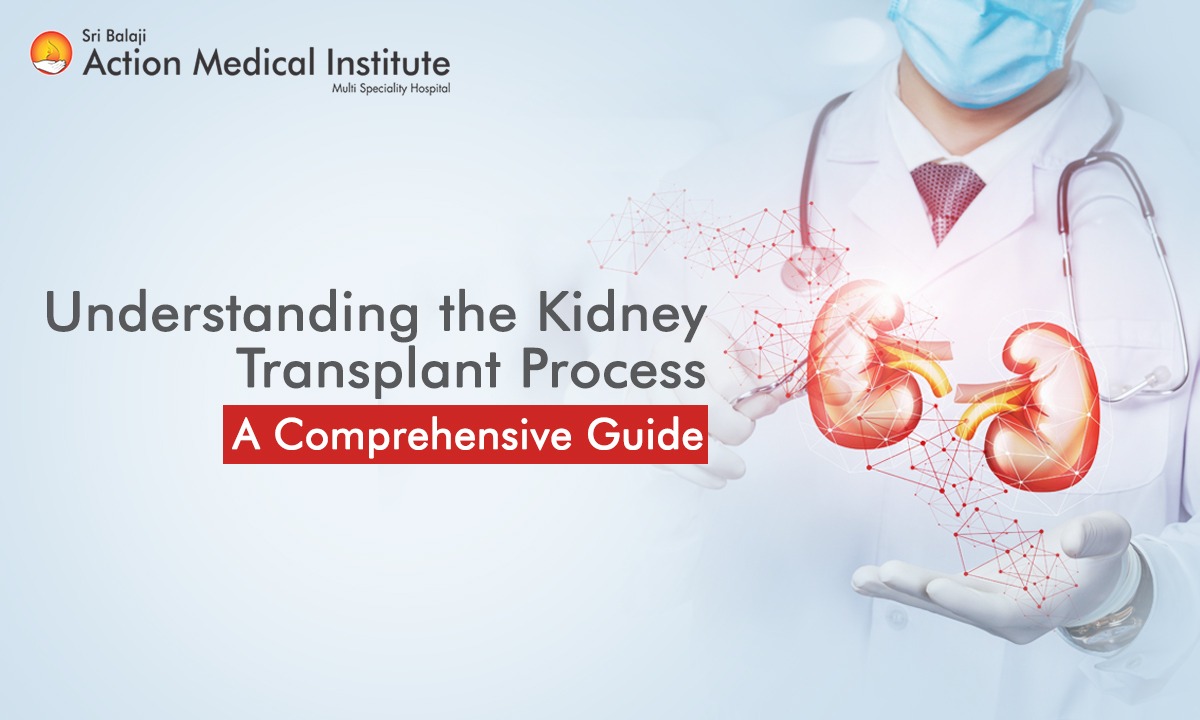Understanding the Kidney Transplant Process: A Comprehensive Guide
For people facing end-stage kidney diseases, the prospect of a kidney transplant is the light at the end of the tunnel. While the opportunity to receive a new kidney may be empowering, having information about the transplant process will only create doubts. This all-inclusive guide breaks down the involved matters of a kidney transplant process, giving you the power to make wise choices and enter this journey with confidence.
What Is A Kidney Transplant?
The kidney transplant process refers to the surgical operation where an appropriate individual’s kidney, either live or dead, is transferred to a patient who cannot function with his/her own kidneys. The kidneys, part of the human postural system, lie on both sides of the spine beneath the ribs. Their function is to filter waste products, minerals, and fluids from the blood to produce urine. If the kidney filtration capacity is lost, the waste levels in the body can reach dangerous levels, causing blood pressure to rise to the point of kidney failure (end-stage renal disease). It results from kidney damage that has significantly reduced its functions by up to 90%.
What Are Some Kinds Of Kidney Transplant?
There are two main types of kidney transplants, which are discussed below.
1. Living Donor Transplant: This may occur when the donor is a family member or a close friend who gives one of their healthy kidneys to save the life of a patient. Living organ donor transplants often result in higher long-term survival rates, shorter waiting times, and lower cases of death without organ transplant compared to receiving a kidney from a deceased person.
2. Deceased Donor Transplant: In this case, kidney transplant surgery occurs when the patient receives a kidney from someone who has died and was very kind to donate their organs. Transplants by deceased donors remain crucial for those individuals who do not possess living donors, so match them accordingly.
When Do People Get Kidney Transplants?
When the kidney organs are not capable of their required functions, the body builds up waste products and extra liquid, and this condition is called end-stage kidney disease (ESKD). While this type of treatment excretes toxins from the body, a kidney transplant provides a permanent cure and the ability to return to a much more regular life. In addition to acute trauma or congenital kidney maladies, that can also be the stride to transplant.
Which Risks Can Happen During Kidney Transplants?
● Rejection: The new kidney may be recognised by your body as a foreign object, and as a result, the immune response may develop, which may result in kidney rejection.
● Infection: Rejection prevention through drugs makes you more likely to acquire infections; as such, you must be very scrupulous and ensure you have regular check-ups.
● Bleeding and Blood Clots: These are very painful, inconsistent intrusions, and perhaps they can fall during or even after the surgery.
● Failure of the Transplanted Kidney: Occasionally, the new kidney may not work correctly or could even have complications, which are very rare to happen.
Preparing for a Kidney Transplant.
Evaluation: The performance of an overall health evaluation, which includes both the physical and cognitive aspects, is executed so that it can be established if you meet the conditions for receiving the transplant.
Finding a Donor: In the case of living donors, extensive criteria for blood tests and transplant compatibility are needed to find a well-suited match. This might also be a circle of family or relatives, friends, or even strangers. It can be as simple as wanting to help the less fortunate.
Medical Tests: Fitness assessments, including physiological and neurological functioning, are performed to determine the potential risks that could threaten recovery after surgery. They ensure that you receive highly suitable surgery to avoid unnecessary illnesses.
Immunisation: Without vaccination, you are at a great risk of becoming infected with infections post-transplantation, so it is wise to get vaccinations.
Psychological Evaluation: Being subjected to the transplant of an organ may result in the person undergoing high psychological stress. Under a mental evaluation, you will have the ability to face any single problem or trouble that you may encounter during the transplant and get prepared for the journey.
The Day of Surgery
During your kidney transplant process, the method typically follows these steps:
Anaesthesia: Deep in the operating room, a soothing anaesthetic is the best company to keep you pain-free and allow you to enjoy some sleep.
Incision: The surgeon will make an incision in your abdomen to gain access to the area to transplant the new kidney.
Transplant: The donor's kidney is carefully placed and linked to your blood vessels and bladder.
Closure: The surgeon inflicts the cut with sutures or staples before proceeding with the dressing of the surgical site.






